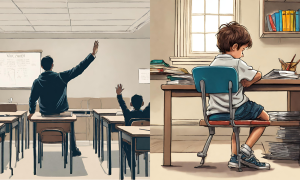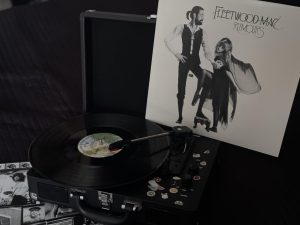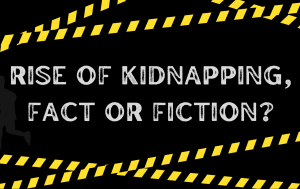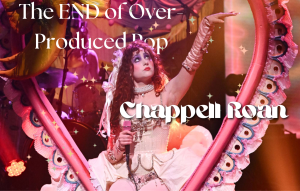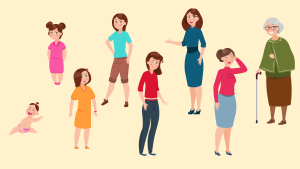Our Policy
FAQ’s:
Q: Do high school students have First Amendment rights?
A: Yes. As the United States Supreme Court said in 1969, “It can hardly be argued that either students or teachers shed their constitutional right to freedom of speech at the schoolhouse gate.” But the First Amendment prohibits only government officials from suppressing speech; it does not prevent school censorship at private schools. A state constitution, statute or school policy could provide private school students with free speech protections.
Q: What about the Hazelwood decision?
A: Hazelwood School District v. Kuhlmeier, the 1988 U.S. Supreme Court decision, gave public high school officials greater authority to censor some school-sponsored student publications if they choose to do so. But the ruling doesn’t apply to publications that have been opened as “public forums for student expression.” It also requires school officials to demonstrate some reasonable educational justification before they can censor anything. In addition, 14 states (Arkansas, California, Colorado, Illinois, Iowa, Kansas, Oregon, Maryland, Massachusetts, Nevada, North Dakota, Rhode Island, Vermont and Washington) have passed laws that give students stronger free expression protection than Hazelwood. As part of SPLC’s “New Voices” effort, other states are considering such laws.
Q: What is a “public forum for student expression?”
A: A student publication is a public forum for student expression when school officials have given student editors the authority to make their own content decisions. Schools can do that through an official policy or by simply allowing a publication to operate with editorial independence. If a student publication is a public forum for student expression, then students are entitled to stronger First Amendment protection. Schools are allowed to censor forum publications only when they can show the publication contains unlawful material or will cause a “material and substantial disruption” of school activities.
Q: So if policy or practice indicates the content of publication is determined by students, the Hazelwood decision doesn’t apply?
A: Yes. Although public schools can establish reasonable restrictions as to the time, place and manner of distribution of independently produced student publications, they cannot absolutely forbid their distribution on school grounds. As long as the publication contains no unlawful content (libel, obscenity, etc.) and its distribution would not seriously disrupt school, officials cannot legally censor it. Online student speech created entirely outside of school is entitled to the same — or greater — legal protection from administrative censorship, with students being fully responsible for what they post.
Q: What about underground or independent student publications? Are they protected from censorship?
A: Absolutely. Although public schools can establish reasonable restrictions as to the time, place and manner of distribution of underground publications, they cannot absolutely forbid their distribution on school grounds. Like school-sponsored publications that are forums, a school must show substantial disruption before they can censor an independent publication.
Q: Are we in danger of getting sued for defamation or invasion of privacy?
A: Very rarely, but it can happen, and it’s important to observe professional standards if you want your work to be taken seriously. You can’t be liable for defamation if you just publish a critical opinion about someone or reveal an unpleasant truth. But if you make a false accusation of fact (even one implied in an “opinion” column), then you may have committed defamation. Invasion of privacy occurs when a publication publicizes embarrassing personal information without consent and with no newsworthy justification, such as gossip about a teacher’s marital problems. It can also happen if you mislabel a photo so that it gives a false impression that harms a person’s reputation (“false light”).
Q: Can we publish students’ names and photos online?
A: Despite what many schools seem to think, no federal privacy law requires a student publication to withhold student information from the internet or get advance written parental consent. If you’re told there is such a ban, ask to see the school district policy in writing — and if the policy applies only to sites hosted on a school server (many do), see if you can get your news site hosted on a third-party server, not one controlled by the school.
Q: Can I use Freedom of Information laws?
A: Yes. Freedom of Information, or “sunshine” laws, require government agencies such as public schools to open many of their official records and meetings to the public. These laws vary from state to state. Every newsroom should have a copy of the state’s open records and open meetings laws — a great state-by-state guide is available on the Reporters’ Committee for Freedom of the Press website.
Legal Guidelines of Student Press:
I. Statement of policy
Freedom of expression and press freedom are fundamental values in a democratic society. The mission of any institution committed to preparing productive citizens must include teaching students these values, both bylesson and by example.
As determined by the courts, student exercise of freedom of expression and press freedom is protected by both state and federal law, especially by the First Amendment to the United States Constitution. Accordingly, school officials are responsible for encouraging and ensuring freedom of expression and press freedom for all students.
It is the policy of the Board of Education that LHStoday, The Ledger, & The Talon Yearbook, the official school-sponsored student media of Liberty High School have been established as forums for student expression and as voices in the uninhibited, robust, free and open discussion of issues.
Each medium should provide a full opportunity for students to inquire, question and exchange ideas. Content should reflect all areas of student interest, including topics about which there may be dissent or controversy.
It is the policy of the Board of Education that student journalists shall have the right to determine the content of student media. Accordingly, the following guidelines relate only to establishing grounds for disciplinary actions subsequent to publication.
II. Official student media
A. Responsibilities of Student Journalists
Students who work on official, school-sponsored student publications or electronic media determine the content of their respective publications and are responsible for that content. These students should:
l. Determine the content of the student media;
2. Strive to produce media based upon professional standards of accuracy, objectivity and fairness;
3. Review material to improve sentence structure, grammar, spelling and punctuation;
4. Check and verify all facts and verify the accuracy of all quotations;and
5. In the case of editorials or letters to the editor concerning controversial issues, determine the need for rebuttal comments and opinions and provide space therefore if appropriate.
B. Unprotected Expression
The following types of student expression will not be protected:
1. Material that is “obscene as to minors.” “Obscene as to minors is defined as material that meets all three of the following requirements:
(a) the average person, applying contemporary community standards, would find that the publication, taken as a whole, appeals to a minor’s prurient interest in sex; and
(b) the publication depicts or describes, in a patently offensive way, sexual conduct such as ultimate sexual acts (normal or perverted), masturbation and lewd exhibition of the genitals; and;
(c) the work, taken as a whole, lacks serious literary, artistic, political or scientific value.
Indecent or vulgar language is not obscene.
[Note: Most states have statutes defining what is “obscene as to minors.”If such a statute is in force in your state, it should be substituted in place of section II(B)(1).]
2. Libelous material. Libelous statements are provably false and unprivileged statements of fact that do demonstrate injury to an individual’s or business’s reputation in the community. If the allegedly libeled party is a “public figure” or “public official” as defined below, then school officials must show that the false statement was published “with actual malice,” i.e., that the student journalists knew that the statement was false or that they published it with reckless disregard for the truth? without trying to verify the truthfulness of the statement.
(a) A public official is a person who holds an elected or appointed public office and exercises a significant amount of governmental authority.
(b) A public figure is a person who either has sought the public’s attention or is well known because of personal achievements or actions.
(c) School employees will be considered public officials or public figures in relationship to articles concerning their school-related activities.
(d) When an allegedly libelous statement concerns an individual who is not a public official or a public figure, school officials must show that the false statement was published willfully or negligently, i.e., the student journalist who wrote or published the statement has failed to exercise reasonably prudent care.
(e) Students are free to express opinions. Specifically, a student may criticize school policy or the performance of teachers, administrators, school officials, and other school employees.
3. Material that will cause “a material and substantial disruption of school activities.”
(a) Disruption is defined as student rioting, unlawful seizures of property, destruction of property, or substantial student participation in a school boycott, sit-in, walk-out or other related forms of activity. Material such as racial, religious or ethnic slurs, however distasteful, is not in and of itself disruptive under these guidelines. Threats of violence are not materially disruptive without some act in furtherance of that threat or a reasonable belief and expectation that the author of the threat has the capability and intent of carrying through on that threat in a manner that does not allow acts other than suppression of speech to mitigate the threat in a timely manner. Material that stimulates heated discussion or debate does not constitute the type of disruption prohibited.
(b) For student media to be considered disruptive, specific facts must exist upon which one could reasonably forecast that a likelihood of immediate, substantial material disruption to normal school activity would occur if the material were further distributed or has occurred as a result of the material’s distribution or dissemination. Mere undifferentiated fear or apprehension of disturbance is not enough; school administrators must be able affirmatively to show substantial facts that reasonably support a forecast of likely disruption.
(c) In determining whether student media is disruptive, consideration must be given to the context of the distribution as well as the content of the material. In this regard, consideration should be given to past experience in the school with similar material, past experience in the school in dealing with and supervising the students in the school, current events influencing student attitudes and behavior and whether there have been any instances of actual or threatened disruption prior to or contemporaneously with the dissemination of the student publication in question.
(d) School officials must protect advocates of unpopular viewpoints.
(e) “School activity” means educational student activity sponsored by the school and includes, by way of example and not by way of limitation, classroom work, official assemblies, and other similar gatherings, school athletic contests, band concerts, school plays and scheduled in-school lunch periods.
C. Legal Advice
1. If, in the opinion of a student editor, student editorial staff or faculty adviser, material proposed for publication may be “obscene,” libelous” or would cause an “immediate, material and substantial disruption of school activities,” the legal opinion of a practicing attorney should be sought. The services of the attorney for the local newspaper or the free legal services of the Student Press Law Center (703/807-1904) are recommended.
2. Any legal fees charged in connection with the consultation will be paid by the board of education.
3. The final decision of whether the material is to be published will be left to the student editor or student editorial staff.
D. Protected Speech
1. School officials cannot:
a. Ban student expression solely because it is controversial, takes extreme, “fringe” or minority opinions, or is distasteful, unpopular or unpleasant;
b. Ban the publication or distribution of material relating to sexual issues including, but not limited to, virginity, birth control and sexually-transmitted diseases (including AIDS);
c. Censor or punish the occasional use of indecent, vulgar or so-called”four-letter” words in student publications;
d. Prohibit criticism of the policies, practices or performance of teachers, school officials, the school itself or of any public officials;
e. Cut off funds to official student media because of disagreement over editorial policy;
f. Ban student expression that merely advocates illegal conduct without proving that such speech is directed toward and will actually cause imminent unlawful action.
g. Ban the publication or distribution by students of material written by non-students;
h. Prohibit the endorsement of candidates for student office or for public office at any level.
2. Commercial Speech
Advertising is constitutionally protected expression. Student media may accept advertising. Acceptance or rejection of advertising is within the purview of the publication staff, which may accept any ads except those for products or services that are illegal for all students. Ads for political candidates and ballot issues may be accepted; however, publication staffs are encouraged to solicit ads from all sides on such issues.
E. Online Student Media and Use of Electronic Information Resources
1. Online/Digital Student Media.
Online/digital media may be used by students like any other communications media to reach both those within the school and those beyond it. All official, school-sponsored on-line student publications are entitled to the same protections and are subject to no greater limitations than other student media, as described in this policy.
2. Electronic Information Resources
Student journalists may use electronic information resources to gather news and information, to communicate with other students and individuals and to ask questions of and consult with sources. School officials will apply the same criteria used in determining the suitability of other educational and information resources to attempts to remove or restrict student media access to online and electronic material. Just as the purchase, availability, and use of media materials in a classroom or library do not indicate endorsement of their contents by school officials, neither does making electronic information available to students imply endorsement of that content.
Although faculty advisers to student media are encouraged to help students develop the intellectual skills needed to evaluate and appropriately use electronically available information to meet their newsgathering purposes, advisers are not responsible for approving the online resources used or created by their students.
3. Acceptable Use Policies
The Board recognizes that the technical and networking environment necessary for online communication may require that school officials define guidelines for student exploration and use of electronic information resources. The purpose of such guidelines will be to provide for the orderly, efficient and fair operation of the school’s online resources. The guidelines may not be used to unreasonably restrict student use of or communication on the online media.
Such guidelines may address the following issues: file size limits, password management, system security, data downloading protocol, use of domain names, use of copyrighted software, access to computer facilities, computer hacking, computer etiquette, and data privacy.
III. Adviser job security
The student media adviser is not a censor. No person who advises a student publication will be fired, transferred or removed from the advisership by reason of his or her refusal to exercise editorial control over student media or to otherwise suppress the protected free expression of student journalists.
IV. Non-school-sponsored media
A. Non-school-sponsored student media and the students who produce them are entitled to the protections provided in section II(D) of this policy. In addition school officials may not ban the distribution of non-school-sponsored student media on school grounds. However, students who distribute material described in section II(B) of this policy may be subject to reasonable discipline after distribution at school has occurred.
1. School officials may reasonably regulate the time, place and manner of distribution.
(a) Non-school-sponsored media will have the same rights of distribution as official student media;
(b) “Distribution” means dissemination of media to students at a time and place of normal school activity, or immediately prior or subsequent thereto, by means of handing out free copies, selling or offering copies for sale, accepting donations for copies of the media or displaying the media in areas of the school which are generally frequented by students.
2. School officials cannot:
(a) Prohibit the distribution of anonymous literature or other student media or require that it bear the name of the sponsoring organization or author;
(b) Ban the distribution of student media because it contains advertising;
(c) Ban the sale of student media; or
(d) Create regulations that discriminate against non-school-sponsored media or interfere with the effective distribution of sponsored or non-sponsored media.
B. These regulations do not apply to media independently produced or obtained and distributed by students off school grounds and without school resources. Such material is fully protected by the First Amendment and is not subject to regulation by school authorities. Reference to or minimal contact with a school will not subject otherwise independent media, such as an independent, student-produced website, to school regulation.
V. Prior restraint
No student media, whether non-school-sponsored or official, will be reviewed by school administrators prior to distribution or withheld from distribution. The school assumes no liability for the content of any student publication and urges all student journalists to recognize that with editorial control comes responsibility, including the responsibility to follow professional journalism standards each school year.
(Source: splc.org)
Comment Policy
We welcome and encourage you to discuss your opinions on LHStoday.org with the comment section provided on published stories. You are responsible for everything you post.
LHStoday does not discriminate against any views, Nevertheless, LHStoday may monitor any user-generated content as it chooses and reserves the right to remove content for any reason whatsoever, without consent. Here are some of the rules we follow:
- Please stay on topic. We will remove content that is clearly off-topic.
- We will remove content that contains abusive, vulgar, offensive, racist, threatening, or harrasing content, personal attacks of any kind, offensive terms that target specific individuals or groups, or sexually explicit material. Reports will also be made to the administration if commented by a student.
- We will remove spam of any content that promotes services or products, or that involves political campainging or lobbying.
- Links to sites and repeat submission of the same (or very similar) contriubtions are viewed as spam and may result in the content being removed.
- Do not post anything that you do not have the right to post or include links to copyright infringing material.
- All user-generated content is released into the public domain unless the participant clearly states otherwise, so do not submit anything you do not wish to broadcast to the general public.
Users who do not comply with these standards of conduct may be removed.


